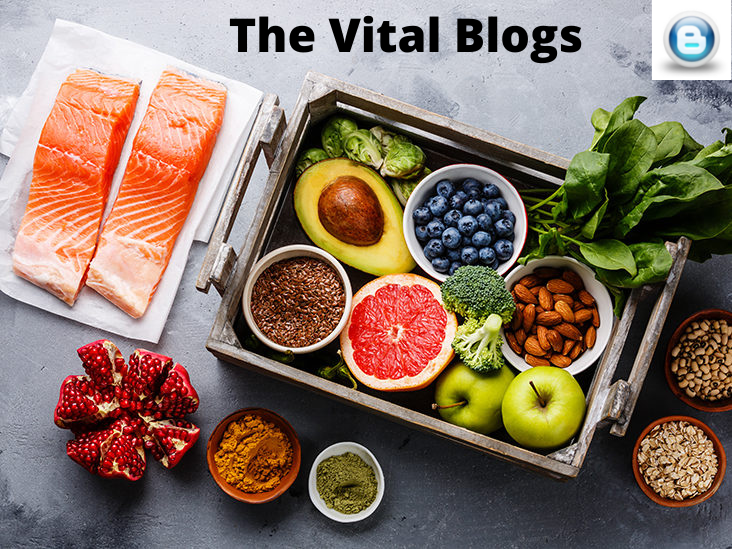
The Scary Truth About Vitamin Deficiencies.If you’re looking to prevent or treat health problems and promote wellness, you need to know about the importance of vitamins and minerals in your diet. Of course, you may already be aware of this – but if not, it’s time to learn! We all need certain vitamins and minerals to live healthy lives. In fact, some are absolutely essential to survival! This article will provide valuable information on vitamin deficiencies and offer tips on how to maintain the right balance in your diet. It’s time to start eating right!
How do vitamins and minerals benefit our health?
Vitamins and minerals are essential for our bodies to function properly. We don’t produce these compounds on our own, so we have to eat them or take supplements in order to maintain optimal health. Each of these nutrients does something different – some are antioxidants, some help regulate your blood sugar, some fight bacteria and viruses, etc. They all work together in various ways to keep you alive and thriving. Without enough vitamins and minerals, your body is at risk for developing serious conditions like diabetes, heart disease, cancer, rheumatoid arthritis – even death!
What Are the Most Common Nutrient Deficiencies?
Most people tend to be deficient in iron, calcium, zinc, and magnesium. Iron deficiency is the most common vitamin deficiency. This condition can occur if you don’t eat enough red meat or if you have an issue absorbing iron from your food. If you are feeling tired or weak and find it difficult to get through your day, you may be suffering from an iron deficiency. The symptoms of a calcium deficiency include brittle nails and teeth, bone pain, numbness in the hands and feet, cramps in the calf muscles, back pain from osteoporosis – all of which may be accompanied by constant mental depression. To fight off this condition it’s crucial to make sure that your diet is rich in dairy products such as milk and cheese for adequate levels of calcium.
What are symptoms of vitamin deficiencies?
Vitamin deficiencies are common because many diets contain too few vitamins. We forget how little some foods actually contain when you look at a label. It’s just not enough to get the daily requirement for all the nutrients we need to function well on a day-to-day basis. Symptoms of vitamin deficiencies may include tiredness, depression, infertility, hair loss and poor skin condition to name a few. It can take years before these symptoms arise so you might think they’re just part of getting older. If you’re wondering what is causing them…well then there is your answer! The most likely culprits? Lack of sleep, an unhealthy diet, stress and an inactive lifestyle are just some contributing factors. Sometimes it could be much more serious than that.
Is it possible to get all needed nutrients from food alone?
It is possible to get the required vitamins and minerals from food alone, but it’s nearly impossible to get all of the vitamins and minerals that you need. An individual would have to eat approximately 21 cups of cooked spinach in order to consume the RDA of iron. Certain nutrients are water soluble and if they’re not found in your diet, you’ll excrete them with your urine. This means that you’ll need to consume more than enough of a specific nutrient for it be utilized by your body or face potential deficiency and associated health issues. The following table can help with determining which nutrients are easily accessible from natural sources (represented by green) vs ones that require supplementation (represented by orange).
Do most people take a multivitamin supplement?
Multivitamins are a great way to ensure that your body is receiving adequate levels of vitamins and minerals. Unfortunately, it’s common for people to not meet their recommended levels due to lifestyle factors such as diet, metabolism, and stress. If you feel that you’re not getting enough from your regular food sources, try taking a supplement or adding foods with these vitamins in them to your diet. You can also see if your doctor will prescribe one, though those usually come with a lot of side effects that the average person doesn’t need to worry about.
Which Vitamins & Minerals Should You Take as Supplements?
Supplements are a good idea if you’re not getting enough vitamins and minerals in your diet. Nutrients can be found in a number of places, but to make sure you’re getting the right one, it’s always good to get it from something natural like food. Supplements can also be taken daily or as needed and they have the same effect on your body – whichever is better for you. A dietician can help design the best plan of vitamins and minerals based on your diet and lifestyle so just ask them if there are any additional things that might be needed too! There are many different options available, like high levels of antioxidants, such as vitamin C or beta-carotene for fighting cancer cells.
Conclusion
In conclusion, Vitamin deficiencies remain common globally. Unless severe, they are often clinically unrecognized, yet even mild deficiency may have significant adverse consequences. Vitamin deficiencies affect all ages and frequently co-exist with mineral (zinc, iron, iodine) deficiencies. The groups most susceptible to vitamin deficiencies are pregnant and lactating women, and young children, because of their relatively high needs for these compounds and susceptibilities to their absence.